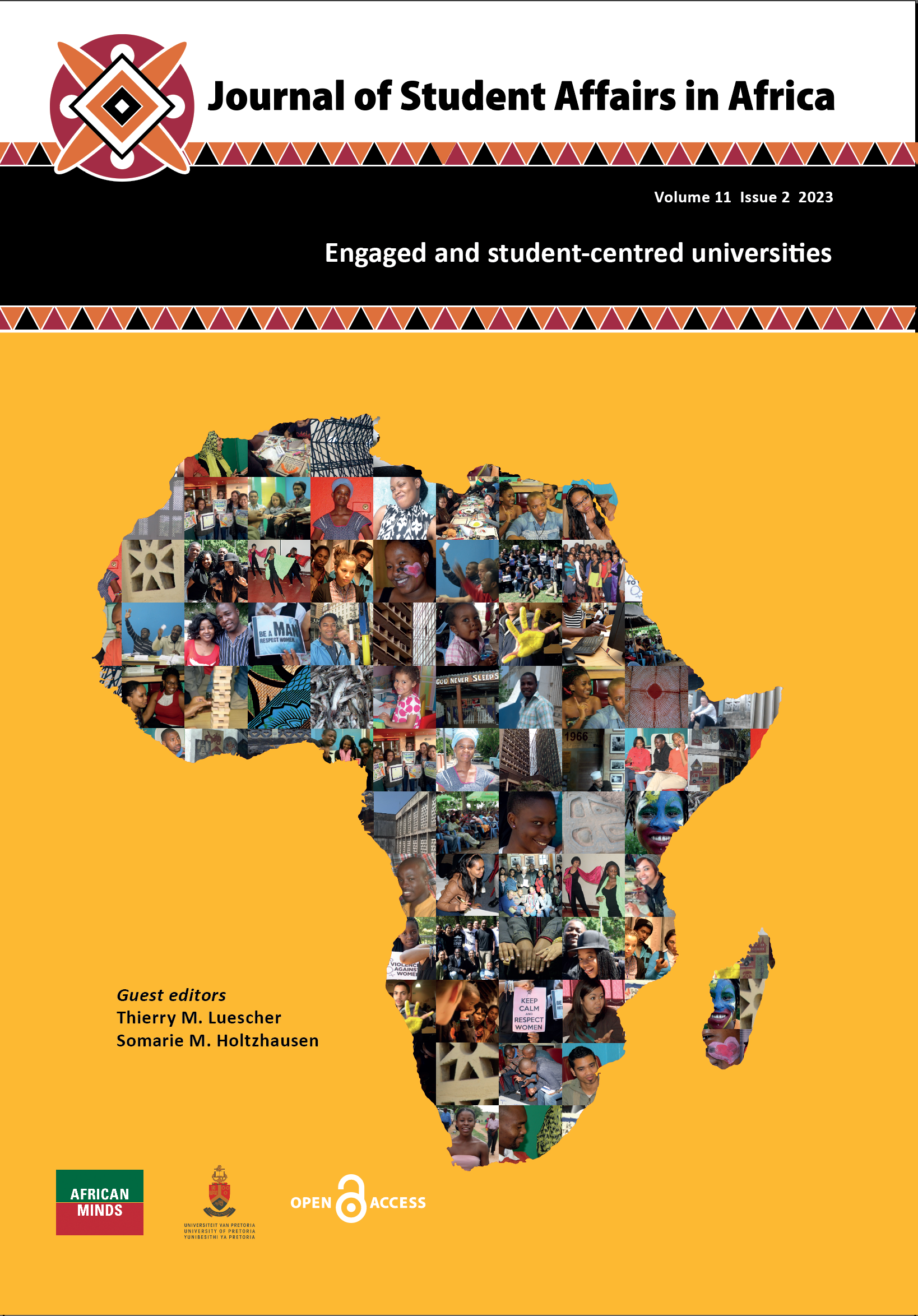"Giving back is typical African culture"
Narratives of give-back from young African graduates
DOI:
https://doi.org/10.24085/jsaa.v11i2.4898Abstract
This article presents a collection of narrative examples on how a cohort of African graduates, who are beneficiaries of a scholarship from a global foundation, understand and practice giving back. The scholarship programme aims to cultivate and support a network of like-minded young leaders who are committed to giving back by providing training and mentorship that reinforces the core values of transformative leadership and a commitment to improving the lives of others. To investigate these ideas, the Human Sciences Research Council is tracking recent graduates of the scholarship programme using a longitudinal cohort study design consisting of a tracer study, annual qualitative interviews with scholarship alumni, and smaller collaborative enquiries. Beginning in 2019 and tracking alumni for a five-year period, the study involves alumni from seven study sites. Findings from the study show that alumni exhibit a strong sense of social consciousness including an alignment of their understanding and practices of give-back with deeply embedded African notions of give-back as a ‘ripple effect’, reciprocity and ubuntu. Alumni acknowledged that there was not only one way to give, indicating that they participated in give-back in relation to their capacity, usually beginning with contributions to the family. As they became more established in their careers, their sphere of give-back increased with their reach expanding to the broader community. A low proportion of alumni felt that they were making an impact on an institutional or systemic level. Findings also show the impactful position that university partners hold in fostering give-back engagement among students and their potential role in supporting alumni after graduation. The article argues that nurturing social consciousness in young people and an understanding of give-back as collective movement building can contribute to solving development and social justice problems in Africa.
Downloads
Published
Issue
Section
License
Copyright (c) 2023 Alude Mahali

This work is licensed under a Creative Commons Attribution-NonCommercial-ShareAlike 4.0 International License.
Authors who publish with this journal agree to the following terms:
Authors retain copyright and grant the journal right of first publication with the work simultaneously licensed under the Creative Commons Attribution Share-alike 4.0 International License that allows others to share the work with an acknowledgement of the work's authorship and initial publication in this journal.
Authors are able to enter into separate, additional contractual arrangements for the non-exclusive distribution of the journal's published version of the work (e.g., post it to an institutional repository or publish it in a book), with an acknowledgement of its initial publication in this journal.
Authors are permitted and encouraged to post their work online (e.g., in institutional repositories or on their website) prior to and during the submission process, as it can lead to productive exchanges, as well as earlier and greater citation of published work (See: The Effect of Open Access).


